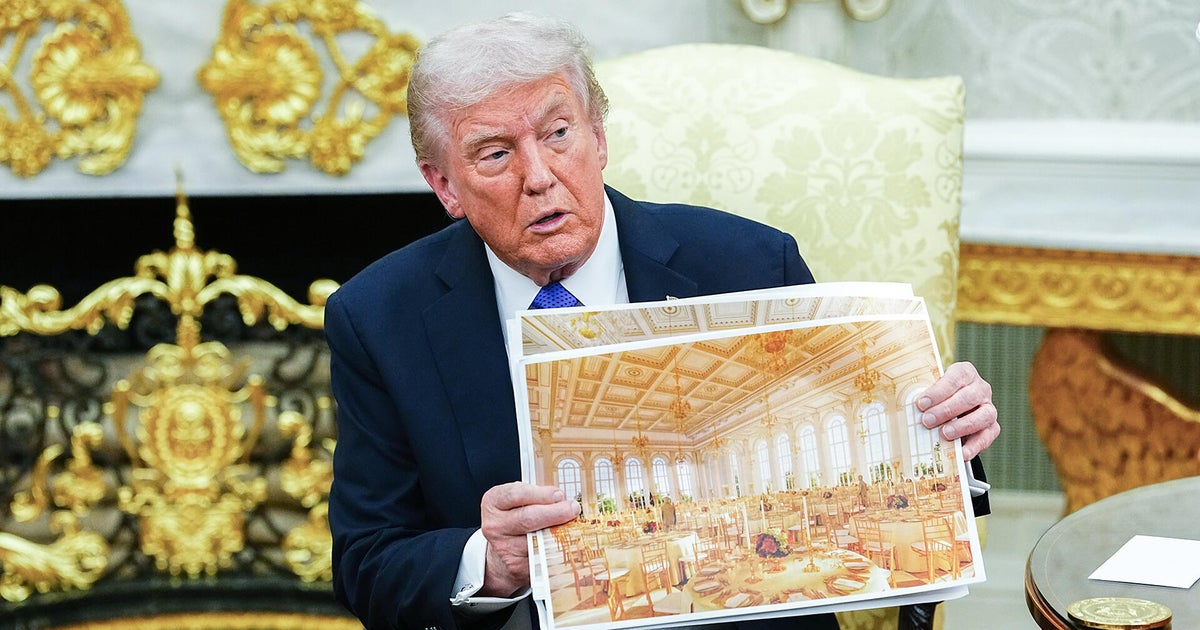New details emerge in declassified Papadopoulos transcript
A newly declassified transcript from the FBI's 2016 Russia probe reviewed by CBS News shows a recorded conversation between former Trump advisor George Papadopoulos and the bureau's confidential human source turned up no evidence of coordination between the campaign and Russia.
The 90-page, lightly redacted transcript between Papadopoulos — who is identified by the code name "Crossfire Typhoon," or CT — and the bureau's confidential human source, or CHS, captures the October 23, 2016 conversation.
Papadopoulos does boast about setting up "a meeting with... (t) President of Egypt and Trump," according to the transcript, and says that he had made "a lot of cool [connections] and I'm going to see what's going to happen after the election."
The recorded conversation was documented in the December Justice Department Inspector General Michael Horowitz's report on the FBI's surveillance of former Trump campaign aide Carter Page.
Of the October 23, 2016 transcript, Horowitz wrote, "Papadopoulos did not say much about Russia during the first conversation with Source 3, other than to mention a "friend Sergey...[who] lives in...Brooklyn," and invite Source 3 to travel with Papadopoulos to Russia in the summertime."
The date on the transcript reflects that the FBI was using a confidential source to gather intelligence about the former campaign aide less than three weeks before the presidential election. Within days of the Papadopoulos recorded conversation, the FBI Russia team, known as "Crossfire Hurricane" had also secured a surveillance warrant for Page to investigate alleged coordination between the Trump team and Moscow.
Papadopoulos is a key figure in the FBI Russia probe. Horowitz found that the bureau opened the case after intelligence received from a friendly foreign government that Papadopoulos "suggested the Trump team had received some kind of suggestion from Russia that it could assist this process with the anonymous release of information during the campaign that would be damaging to Mrs. Clinton…"
Earlier this month, CBS News was first to report that transcripts of a separate conversation, on October 31, 2016, showed that Papadopoulos denied to an FBI confidential source that the campaign was involved in the circumstances surrounding the hack of the Democratic National Committee's email system, calling the idea "illegal."
However, Horowitz also noted in his report that "Case Agent 1" had said of a similar recorded conversation with Papadopoulos in September 2016, "the Crossfire Hurricane team's assessment was that the Papadopoulos denial was a rehearsed response, and that he did not view the information as particularly germane to the investigation of Carter Page."
Case Agent 1 told the OIG that he and the team had discounted Papadopoulos' denials for a number of reasons, but a footnote to the report said the agent realized in hindsight that the denials, as well as the team's assessment of his denials, should have been shared with Justice Department's office of intelligence (OI) "in order for [OI] to make the determination whether [those denials] should be in the application."
Faulting the FBI, Horowitz wrote that because the surveillance target has "no defense counsel," there is a special obligation on the FBI and Justice Department to "over tell" the story and include a "full and accurate" presentation of the facts to meet the bureau's standard of "scrupulously accurate."
Apart from the serious flaws Horowitz found in the FBI investigation, he said in his report that "we concluded that the quantum of information articulated by the FBI to open the individual investigations on Papadopoulos, Page, Flynn and Manafort in August 2016 was sufficient to satisfy the low threshold established by the Department and the FBI."
But some of Horowitz's findings were disputed by U.S. Attorney John Durham, who is conducting a broader investigation. At the time, Durham said "we do not agree with some of the report's conclusions as to predication and how the FBI case was opened."
In response to the Horowitz report, the FBI has undertaken a broad review of the FISA process, and Director Christopher Wray "ordered more than 40 corrective steps to address the Report's recommendations."



